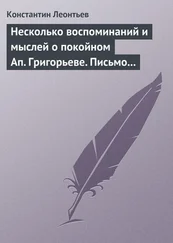Abel Jasmine smiles paternally.
“Off you go, both of you. Things are going to change for you, Edie. We’ll talk about it in the morning. But from all of us: well done. Well done, indeed. Now, Clarissa will sort out that hand for you.”
Edie allows herself to be led away.
Clarissa Foxglove cleans her hand quite ruthlessly, and Edie yelps a couple of times as she goes after an embedded bit of dirt. Then she escorts Edie to the baths and hands her warm towels with a very professional air, and finally walks her back to her stateroom.
“You knew all along?”
“Oh, yes. Someone goes for it about once a year. It’s who we all are. Fools for love of country, and so on.” Clarissa smiles. “Come on. Time to put you to bed.” She shunts Edie gently forward, pressing against her back, and Edie remembers the question of whether they should bare their souls. She can feel the other girl very clearly behind her. She turns around, smells mint and cigarettes, and knows it is the scent of Clarissa’s mouth.
Clarissa Foxglove stretches. She throws her arms out to the side and lifts them very deliberately up above her head. Edie watches.
“I expect you’re very tired,” Clarissa says. “I know I am. It’s been a long day. But on the other hand, you might—just might…” she shifts her weight against the door and lets it close, her back arched just a little, revealing a deep, broad V of skin “… want to stay awake a bit longer.”
Edie makes a noise which is almost a groan and lunges forward. Clarissa Foxglove is already half out of her gown.
Edie Banister, girl superspy, lands on her back and makes a noise like someone dropping a set of bagpipes. She can see blithering yellow sparkles, playing on her eyeballs. Ooh. Pretty…
She tries to breathe. It’s extremely uncomfortable. She can feel the train rolling under her, the rails in her chest. Zigadashunk tchakak . Points. Shaddadtakak .
Little yellow sparkles. Bit spangly and brown. Mrs. Sekuni appears next to her and pokes her sharply. It provokes a cough, and suddenly she can breathe again, clear and deep.
“That was not very good,” Mrs. Sekuni says. “It was very not very good.”
“Bad,” says Edie hoarsely, now that normal services have been restored to her lungs.
“No,” Mrs. Sekuni replies. “It was not bad. It was very not very good.”
For Mrs. Sekuni, who is small and South-East Asian and very pretty, precision is important. If English does not possess the necessary nuances, the language will be modified until she can convey what she wishes to say. Thus a sequence of not-goodnesses ranging from “quite not very good” which is better than “not very good” but not actually acceptable, downwards to “very not very good” and “really very not very good” and “very very not very good.” Mrs. Sekuni is entirely capable of using a selection of English words to fill these positions in her measure, but English words mean subtly different things to each individual English person, and Mrs. Sekuni some months ago got tired of demonstrating her version of those words and having soldiers and spies and policemen argue with her. So now she just uses English in her own way, and one of the first things her students have to learn is where on the slide rule of catastrophe their latest effort comes.
“Very not very good,” Mrs. Sekuni says sorrowfully, and Edie feels a pang of remorse. Reading a dusty book from a great stack on his table, Mr. Sekuni clears his throat and glances at his wife reproachfully.
“It was better,” Mrs. Sekuni allows. “Better.”
So Edie, revitalised by the knowledge that although she is still useless she is at least improving, scampers to her feet and takes her position on the tatami . This is a Japanese word meaning “practice matting,” except that it doesn’t quite mean that, so now there is a new Sekuni-English word to mean exactly what the original means, and by happy coincidence this word sounds like an English person trying to say the word “tatami” in Japanese.
Edie has recently learned a number of interesting concepts from Mrs. Sekuni as part of her study of budo . “Not just bujutsu!” Mrs. Sekuni says sharply. “ Budo! You will learn more than my skin and flesh.” At which Edie blushed enormously and looked the other way.
Mr. Sekuni shouts “Hajime!” and Edie attacks, then finds herself flying through the air again, though this time she manages her landing well and rolls to her feet, once more on guard. Mrs. Sekuni nods judiciously.
“Better?” Edie asks hopefully.
“Very better,” Mrs. Sekuni says.
“I don’t understand,” Edie says later, while Mrs. Sekuni watches a company of special soldiers work through their training in orderly pairs against the backdrop of the Lovelace ’s dojo. “I thought Japan was our enemy.” Because Japan and Britain have not been cordial since Tientsin.
“No,” Mr. Sekuni says. “Japan is no one’s enemy. It is an island composed of rock and earth, washed by the sea and the rain and shadowed by a great volcano. Japan itself has no political or even imperial opinions of any kind. Even the people of Japan—and there are many different kinds of people in Japan—even they are not your enemy. The Emperor, perhaps. The state, most definitely. But not us—which is why we are here.”
“Do many people in Japan feel this way?”
“Yes,” says Mr. Sekuni.
“No,” says Mrs. Sekuni.
“Many,” Mr. Sekuni asserts firmly.
“But not a large fraction of the overall population,” Mrs. Sekuni says with great precision, and this Mr. Sekuni has to acknowledge is quite true.
“We are communists,” Mrs. Sekuni says matter-of-factly. “We do not believe in emperors or queens or free markets or even the dictatorship of the proletariat. We believe in a world where people are equal in dignity, not contempt, and where resources—which under Capital are distributed through the quasi-randomness of a market operating blindly with respect to things which cannot easily be measured—are allocated in a sane fashion by the State.
“But that is all I have to say about that because I am not allowed to promulgate my disgusting Nippo-Marxian propaganda to operatives of S2:A, by special order of Mr. Churchill, who by the way is a fat, smoke-filled reactionary warthog and a very nice man.”
She sighs. For a moment, her face relaxes and Edie can see the signs of early age in her: lines of gentle care and creeping sorrow. Then she rolls her head briskly, and there’s a gristly popping sound.
“Come,” Mrs. Sekuni says, drawing Edie back onto the mat. “Yama Arashi. The mountain storm.” A wide space forms around them; Mrs. Sekuni has stern views about people who stray into her personal training area.
“Take this and strike.” She hands Edie a long wooden stick, notionally a sword. “No hesitating! Strike!”
Edie does, as she has been taught. Mrs. Sekuni does not roll away or retreat. Instead, she moves forward, arms open as if she intends to embrace the blade. Edie has a horrible image of her doing just that, some furious soldier of the Emperor delightedly cutting her in half, and Mrs. Sekuni’s beautiful, tiny figure parting company along a diagonal line, and Mr. Sekuni’s genial, clever face moving from grief to rage as he tears the soldier apart and runs howling at his nation’s lines and is in turn shredded by more modern weapons.
Читать дальше









![Ник Харкуэй - Гномон [litres]](/books/400023/nik-harkuej-gnomon-litres-thumb.webp)




